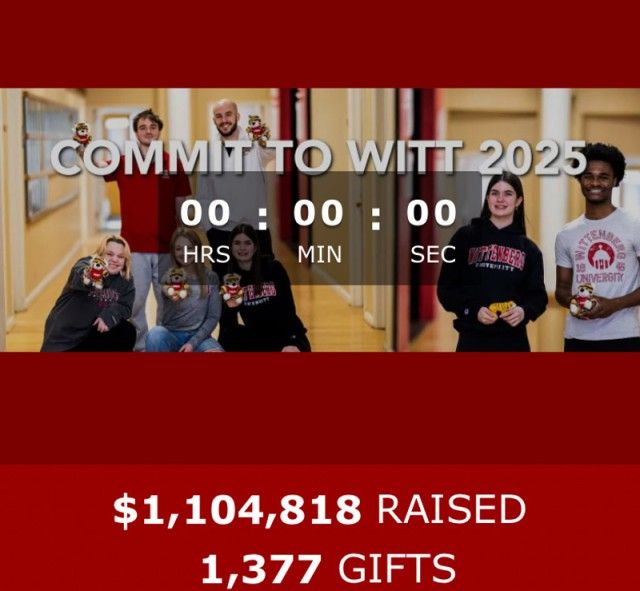In an effort to raise campus awareness about underage drinking, Tom Rathbun, a new staff counselor in Wittenberg’s Tiger Counseling Center, applied for and was awarded a stipend from the Substance Abuse and Mental Health Services Administration (SAMHSA) for an alcohol abuse prevention initiative titled ‘Communities Talk.’
The $750 stipend will be used for student programming during Welcome Week 2023, which will take place Aug. 24-27.
“Wittenberg is a community that cares about each other and wants to keep each other safe,” Rathburn said. “I applied for the stipend through SAMHSA's website by providing information about our institution and the type of event we would be hosting. After some discussion, we felt that it would be helpful to integrate a ‘Communities Talk’ event into our Welcome Week programming. We want to provide our incoming freshmen with information regarding alcohol and a space to reflect on their boundaries around alcohol use.”
Rathbun added that Wittenberg follows a “harm reduction model,” which means the University recognizes that students may choose to drink during their college experience.
“If they do choose to use alcohol, we want to provide information so they can make informed decisions and remain safe,” he added. “The stipend is being used to bring in a facilitator who will run two sessions, providing facts about alcohol's effects on the mind/body and activities to help students reflect on their boundaries around alcohol as they enter their first year.”
The ’Communities Talk’ initiative aims to promote conversations about alcohol and other drug misuse with the goal of providing education and prevention efforts within communities of youth and young adults such at schools, universities, etc.
Wittenberg events titled “Tigers Talk: Conversations about Alcohol on Campus” will take place on Saturday, Aug. 26, from 9 a.m. to 9:45 in room 152A of the Barbara Deer Kuss Science Center and from 10 to 10:45 a.m. at the Pam Evans Smith Arena, part of the Health, Wellness & Athletics Complex. Alex Kennedy, director of member education and experience at Delta Tau Delta, will be the facilitator for both events.
Kennedy joined the Delta Tau Delta staff in June 2020 and oversees all educational initiatives for undergraduates – including officer education and member/leadership programming. She received her B.S. in applied arts with a major in communication from Central Michigan University and her M.A. in student affairs and higher education from Western Kentucky University. A member of Alpha Gamma Delta Fraternity, she also volunteers with the Junior League of Indianapolis, where she serves as the provisional (new member) chair, Girls Inc. of Greater Indianapolis as a program facilitator and has donated her time and effort to many interfraternal organizations throughout her career.
According to its website, SAMHSA, the agency within the U.S. Department of Health and Human Services that leads public health efforts to advance the behavioral health of the nation, was established by Congress in 1992 to make substance use and mental disorder information, services, and research more accessible. The site notes that alcohol continues to be the most widely used substance of abuse among American youth, and a higher proportion use alcohol than tobacco, marijuana, or other drugs. Underage drinking often begins at an early age and of those who drink underage, 15 percent began using alcohol before they were 13 years old. In 2019, over seven million 12-to 20-year-olds reported past month alcohol use, over four million reported past month binge drinking, and nearly one million reported past month heavy alcohol use.
SAMHSA has advisory councils or committees across the country to help advance its goals. Through these councils and committees, SAMHSA draws advice from public members and professionals in the field of substance abuse and mental health, and sponsors stipends for Communities Talk, an initiative that focuses on alcohol and other drug misuse that negatively affect communities and our youth. Since 2006, the initiative has provided prevention resources and stipends to thousands of community-based organizations, colleges, and universities.For more information, click here.







